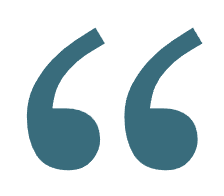This was my children’s expression for “I don’t agree with you. And by the way, “I don’t feel like talking about it either because I’m busy doing other much more interesting things. Meanwhile, I enjoy the conversations with these now adults and learn from their authentic way of thinking.
Authenticity & effectiveness
‘Don’t talk shit’ in the workplace can also be translated as, ‘I can hear you, but your message isn’t getting through’. Let that be one of the main reasons why in many teams team effectiveness is significantly lower than necessary. We communicate a lot, do it all in our own way and also like to ‘just be ourselves’. Who else would you like to be, by the way? It could be argued that team members who share their authentic ideas with others on their team mean some gain for the growth and positive energy of the team. The question is, however, how often do we hit the bull’s-eye with this authentic way of communicating? Unfortunately, less often than we would like.
By being authentic, you bring a unique perspective to your team. Authentic in this context is about expressing your thoughts and feelings. Information is exchanged that is in the best interest of the team. Others might not have looked at “it” from that side yet. Your team and individual team members can benefit from this. Authenticity has an undeniable positive effect on your well-being. But as experience as research shows, it remains to be seen whether authenticity also has positive effects on relationships within a team.
Psychological safety is not enough
Surely, if everyone on a team is able to express their opinions and ideas and is not afraid to reveal who they really are and what they think, the effectiveness of the team should improve. Unfortunately, this psychological safety still does not bring about better team results. In fact, authenticity can actually reduce effectiveness according to research!
So what about that authenticity and increased team effectiveness? Teams can definitely perform better provided the authenticity with which we address each other is valued. This means that you must ensure that there is also a proportionate amount of listening capacity to actually hear and allow other perspectives to arrive. I hear you and your message arrives’. An indispensable tool in team effectiveness is the use of communication or interaction styles. When used properly, you can exert control over your desired outcomes while being authentic in sharing your perspectives.
Control over your results
The way to actually exert control over a situation while maintaining your authenticity is to capitalize on the form of your message. We described authenticity above as expressing your thoughts and feelings. Nothing changes about that. It’s all about what form you cast that authenticity in. In an earlier blog, I wrote about the different communication or interaction styles. In summary, this is about being successful by using the right form of your message.
Send your authentic message in the form the receiver understands and he will respond from his authenticity. The psychological safety and listening capacity is there. So you get the authentic, if you will uncensored, information from that other person. If you are authentic in your communication without regard to the listening capacity of the other person, then you are relinquishing control of the outcome. After all, the other person only hears your authenticity, but you haven’t activated that other person’s listening-capacity button yet.
In other words, you get a response to the way you packaged your information. Say the “don’t talk shit” response. And therefore usually not the result you are looking for. It is no more and no less than that. The way the message is delivered or received, the form, determines 70%(!) of the effectiveness of the result.
Listening capacity and authenticity at a simple game
When facilitating teams, it is almost hilarious to see what happens when I give an assignment to solve a simple game with each other. The stopwatch comes on and I tell the team that I am timing and comparing it to teams that have played this game before. That’s always the go-ahead for a few team members to get started right away. They don’t want to lose any time and they want to set the best time. Immediately call out all kinds of ideas and take action. Very authentic, you might say, but not nearly everyone has their listening-capacity button activated. The chaos becomes complete when several people simultaneously call out authentically how the solution can be achieved. That’s when some of the team drops out and thinks “don’t talk shit. They don’t really listen or don’t listen anymore and do their own thing. On average, this simple task takes the team three times as much time as it would need. The authenticity and listening capacity is not balanced.
By the way, the simpler the task the longer the teams usually take. Thus, there is no relationship between the cognitive brain and the degree of success with which the team accomplishes the task.
Successful interaction
Clearly, an effective team must have a good interaction of listening capacity and authentic expression of thoughts and feelings. Only then does authenticity have a positive effect on team results. The tool to positively influence the effectiveness of a team, in my opinion, is conscious use of communication or interaction styles. Your authenticity is preserved, listening capacity is balanced, and the successes roll around your ears. The good news is: anyone can learn this!
Note: The relationship listening capacity and authenticity is taken from: Journal of Applied Psychology, How team averages in authentic living and perspective-taking personalities relate to team information elaboration and team performance.
Want to learn more about effectiveness and leadership? Watch: The Leader in You!



